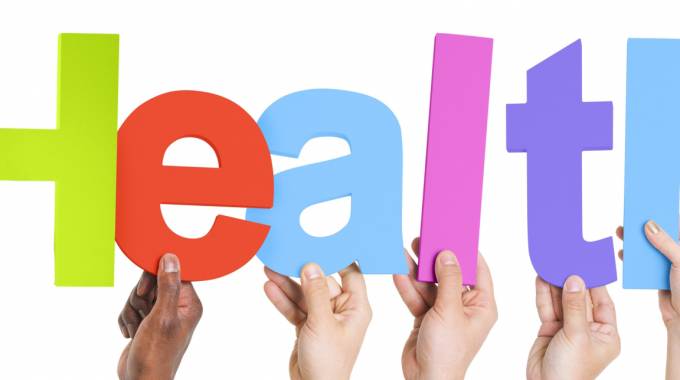
The ManicaPost

Dr Mazvi Machinga Health Matters
When the news that,people have perished in a flooded mine, two buses had an accident, or some civilians have been shot in the streets and people have died, spread around Zimbabwe, the reaction was like that of any trauma. I heard people saying, “this cannot be, why God?”
For the past weeks, Zimbabweans have been mourning and grieving the loss and injury of our gallant citizens through Jongwe Mining Cooperative Disaster. This comes barely a few months after the Rusape Bus Disaster that claimed over 50 people’s lives. It makes me feel sad when we lose lives in this manner. These tragedies make me think of the importance of communities to be continually educated on the impact of such events to the human well-being. When a traumatic event strikes a community, there can be collective impact of pain, loss, and anxiety that trickles down and has lasting psychological effect. This should not be left unattended, it should be addressed.
This is where churches and other helping professions such as psychologists need to come in and assist people deal with these life-threatening events.
I have had a chance to meet with survivors and families of those who perished in such national tragedies and realise that those who witnessed such were still in shock. There is widespread fear and at times, a sense of panic weeks even after the events. Even those far from the event itself could feel the ripple effects of uncertainty, anxiety, and a collective sense of loss.
Rusape town, for instance, entered a period of mourning and grief, with Manicaland province and the nation at large. What makes it more challenging is that not all the people have the same reaction. Not every person develops psychological distress from these events, but a good number of people do. It is as if even though the effects of collective trauma are like individual trauma, they are often harder to diagnose and treat.
They require a wider spread, community approach not one person or one agent. What has your community done after tragedies, to help people recover. Have you tried to come together and help people recover? Sadly, the outcomes of not recovering from trauma, depressive and anxiety disorders, are at the root of drug and alcohol abuse and inability to sustain healthy relationships in any community. It is also at the root of neglect, abuse and domestic violence. This article seeks to sensitise on what communities and families can do. I hope this will be informative to many.
What communities can do after disaster tragedy
It can be difficult to know how to help someone when they have gone through a distressing or traumatic event like the Jongwe mine disaster or the Rusape Bus disaster, but intervention is needed. The first thing is to know that, while such events need physical and medical attention first in case of any physiological harm, trauma leaves spiritual, emotional and psychological wound that needs attention. Unfortunately dealing with it that way is not something that we traditionally do well. It’s always kind of a missing factor in understanding and approaching trauma recovery.
One of the things that can develop is post-traumatic stress disorder (PTSD) and reportedly feeling psychological distress. The distress, fear and increased anxiety are normal reactions. People need acute care/medical attention and then soon after focus on providing emotional and psychological intervention early. This is an effort to prevent long-term negative reactions.
Second, it is important to help people accept what has happened and the pain associated with the event. There is nothing you can say or do to make the person’s pain disappear, it is painful and you just need to journey with someone. Explain to them that you are sorry about what they have had to experience and that you are there to help them in any way they need. Remember you are not there to prevent the pain but to support them in their pain. It’s always good to ask the person who has experienced a traumatic or distressing event what you can do to support them. Suggestions for supporting include:
1) Seeking practical help, they may need e.g. medical care, social support, food, safe shelter, distress processing etc. Be available, show up and offer support and care.
2) Allow the person to talk about what happened, even if they become upset. Just be calm and listen carefully – getting upset too doesn’t help. Don’t avoid talking about the event.
3) Community prayers or vigils can allow people to express their feelings of gratefulness or anger and that they are not alone in all this. Work together government and civil society , no silos please when this happens joint effort is more valuable.
4) Don’t take their feelings to heart. They may be irritable, depressed, angry or frightened. Strong feelings and emotional outbursts are common – try not to take it personal. Be patient and listen attentively.
5) Encourage the person to take good care of themselves, for example, by eating well, avoiding alcohol, drugs or stimulants, and by attempting to maintain regular sleeping habits.
6) Don’t think you know how the person thinks or feels. Everyone’s response is different. Honour it.
7) Don’t insist they need professional help. Not everyone who experiences a distressing event needs treatment. It will be more effective if they get it when they want it, even if that is later than is ideal. But if they are not doing well please refer them for help.
8) Help them to relax and get involved in positive coping activities and where to get help.
Dr Mazvita Machinga is a psychotherapist based in Mutare and for more information on this and other counselling needs call 0771754 519 / 0778 83 88419 email [email protected]



